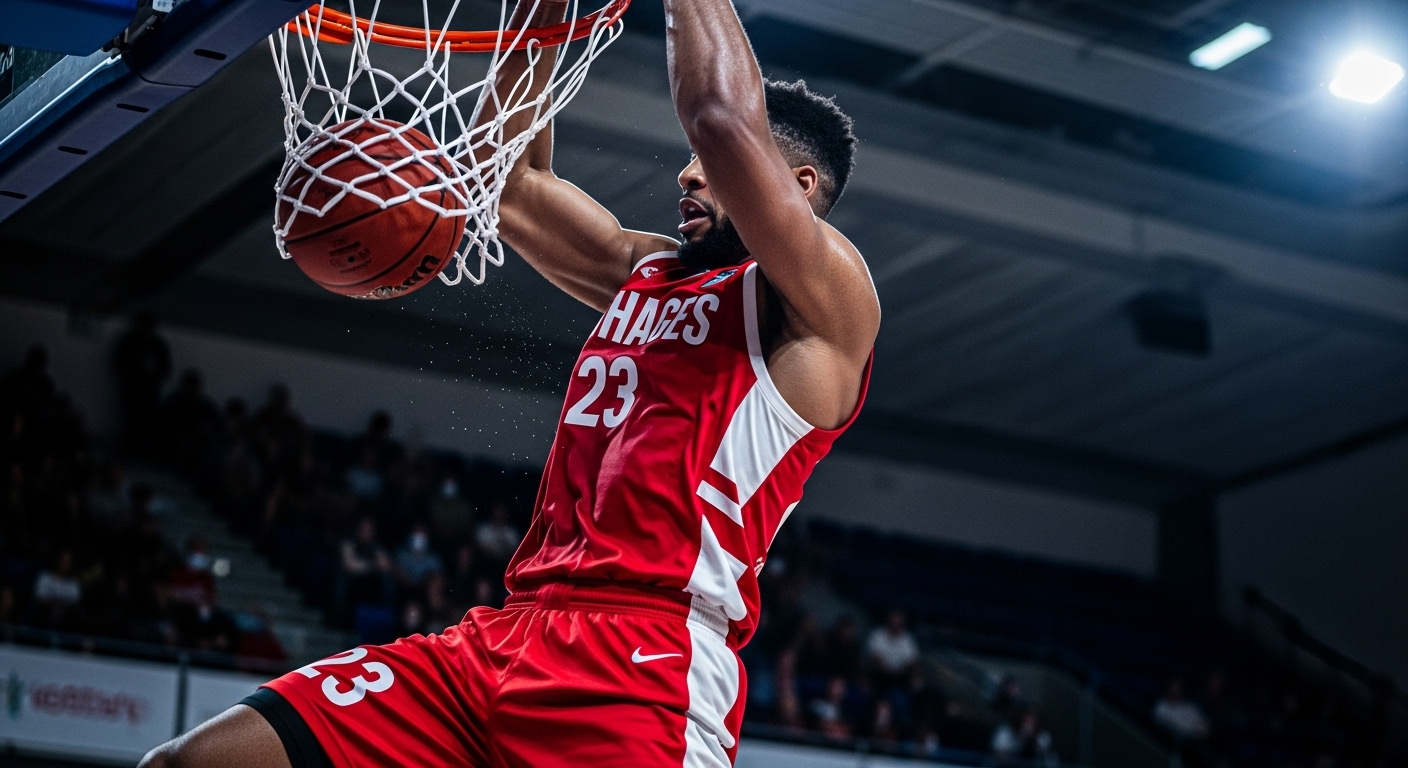Introduction: The Language Everyone Understands
Sports are far more than just games played on fields, courts, and tracks. They are global rituals, shared passions, and physical expressions of identity and culture. Whether it’s a child kicking a ball in a dusty village, elite athletes competing in world-class arenas, or fans gathering around screens in every corner of the world, sports unite people across social, economic, and cultural lines.
In modern society, the role of sports has expanded beyond recreation or competition. Sports now influence economics, politics, education, media, and even social justice. This blog explores how sports have evolved, what they mean to individuals and societies, and why they continue to matter more than ever in our increasingly complex world.
A Brief History of Competitive Spirit
The origins of sports can be traced back thousands of years. Ancient civilizations like the Greeks, Egyptians, and Chinese all had forms of physical competition. The Olympic Games began in ancient Greece around 776 BC and remain one of the most iconic international sporting events today.
In ancient times, sports were often tied to military training, religion, or rites of passage. As time progressed, they became organized for entertainment and competition. By the 19th century, the industrial revolution and global colonization led to the spread of standardized sports like soccer, cricket, tennis, and boxing.
Today, the world of sports is incredibly diverse and highly professionalized, with leagues, tournaments, and organizations in almost every country. The rise of media and global broadcasting has transformed local matches into international spectacles, making sports one of the most powerful cultural forces in the world.
The Mental and Physical Impact of Playing Sports
Participating in sports brings immense benefits, both physically and mentally. On a basic level, sports help maintain fitness, build endurance, and improve coordination. Regular physical activity reduces the risk of chronic diseases like diabetes, obesity, and heart conditions.
But the impact of sports goes well beyond the physical. Engaging in athletic activities teaches valuable life skills such as discipline, teamwork, leadership, and resilience. Children who grow up playing sports often develop better social skills, stronger self-esteem, and the ability to manage stress.
At a psychological level, sports serve as an emotional outlet. They provide structure, a sense of purpose, and a way to channel energy and emotion constructively. For many, especially those facing personal or social challenges, sports offer a lifeline, a way to feel connected, and a space where effort and merit are rewarded.
The Role of Sports in Shaping Identity and Community
Sports often serve as a mirror to personal and national identity. People align themselves with teams, athletes, or national squads in ways that reflect who they are or who they aspire to be. The colors worn by fans, the chants sung in stadiums, and the flags waved during matches are more than just symbols of support—they are declarations of belonging.
Communities form around local teams, schools, or even informal games played in neighborhood parks. These shared sporting experiences foster bonds that are hard to replicate elsewhere. Cities have been known to come to a complete standstill during important games. Victory or defeat can affect the mood of entire communities.
On a national level, international sporting events often become platforms for cultural expression and pride. Countries invest heavily in the Olympics or World Cups, not just for the medals or trophies, but for the chance to showcase their values, talents, and unity on a global stage.
The Global Economy of Sports
Sports are also a significant part of the global economy. Professional leagues and franchises are multimillion-dollar or even billion-dollar enterprises. Players sign endorsement deals that make them household names. Sponsorships, merchandise, ticket sales, broadcasting rights, and advertising deals generate massive revenues.
Events like the Super Bowl, FIFA World Cup, or the Olympic Games attract viewers in the billions and provide enormous economic boosts to host cities. These events fuel tourism, infrastructure development, and employment across a wide range of sectors.
Furthermore, technology has opened new doors for monetization. From streaming services and digital merchandise to fantasy sports and gaming, fans now engage with sports in more interactive and commercial ways than ever before.
Sports and Education: Building Better Futures
In schools and universities around the world, sports are integrated into education as a vital part of student development. Athletic scholarships provide access to higher education for talented youth who may otherwise have limited opportunities.
Participation in school sports encourages discipline, goal-setting, and time management. Students learn to handle both success and failure with grace—skills that translate well into adult life and professional careers.
Moreover, organized sports in educational settings help build inclusive communities where children of different backgrounds come together to work towards shared goals. For many students, the memories made on the field or court last just as long as the lessons learned in the classroom.
The Social Power of Sports: Driving Change and Unity
In recent years, athletes and sports organizations have increasingly used their platforms to speak out on social and political issues. From racial justice and gender equality to mental health and environmental awareness, sports figures have become some of the most influential voices for change.
Notable athletes have taken knees during national anthems, spoken openly about their mental health struggles, and launched foundations to help underserved communities. These actions resonate globally because sports reach audiences that may not typically engage with such issues.
Sports can also be a force for peace and diplomacy. Throughout history, sporting events have brought together nations and individuals with deep political divides. Games have been used to open diplomatic relations, promote tolerance, and rebuild post-conflict societies.
Technology and the Evolution of Sports
The digital age has brought revolutionary changes to how sports are played, viewed, and experienced. From instant replays and performance analytics to wearable tech and virtual training simulations, athletes now use advanced tools to improve their performance.
Fans have also benefited from technological advancements. With live streaming, 360-degree replays, mobile apps, and fantasy leagues, engagement is more immersive than ever. Social media connects fans with their favorite athletes in real time, building a more personal and continuous interaction.
Technology is also helping referees and officials make more accurate decisions. Video assistant referees, goal-line technology, and digital scoreboards have reduced human error and made sports more fair and transparent.
Women in Sports: Breaking Barriers and Rewriting Narratives
The rise of women in sports is one of the most inspiring stories of the modern era. Despite facing historical marginalization and underrepresentation, female athletes have broken records, shattered stereotypes, and won the hearts of fans worldwide.
Women’s leagues are gaining popularity, and major tournaments are now drawing record viewership. Athletes like Serena Williams, Simone Biles, and Megan Rapinoe have not only achieved excellence in their fields but also become icons of empowerment and resilience.
However, challenges remain. Issues like equal pay, media coverage, and investment continue to be battlegrounds in the fight for equality. Still, the progress made is undeniable, and the momentum behind women in sports is stronger than ever.
Challenges in the World of Sports
Despite the many positives, the world of sports faces several ongoing challenges. Corruption, doping, and match-fixing scandals have occasionally damaged public trust. The mental and physical pressures faced by professional athletes are immense, leading some to early burnout or retirement.
Youth sports are sometimes criticized for becoming too commercialized or overly competitive, placing unnecessary pressure on children. At the grassroots level, lack of funding and infrastructure limits access for many communities.
Moreover, inclusivity remains a concern, with ongoing discussions about gender identity, racial equity, and accessibility for people with disabilities. Addressing these challenges requires not only changes in policy but also shifts in cultural attitudes and values.
Conclusion: Why Sports Still Matter
In a fast-changing world filled with uncertainty and division, sports remain one of the few constants that continue to bring people together. They teach us about resilience, teamwork, and striving for greatness. They offer joy, healing, and inspiration when we need it most.
Sports are not just games played between teams—they are living stories of human achievement, of overcoming odds, of finding purpose in movement and meaning in effort. Whether you are a professional athlete, a weekend warrior, or a passionate fan, sports give all of us a reason to cheer, to hope, and to believe in something bigger than ourselves.



